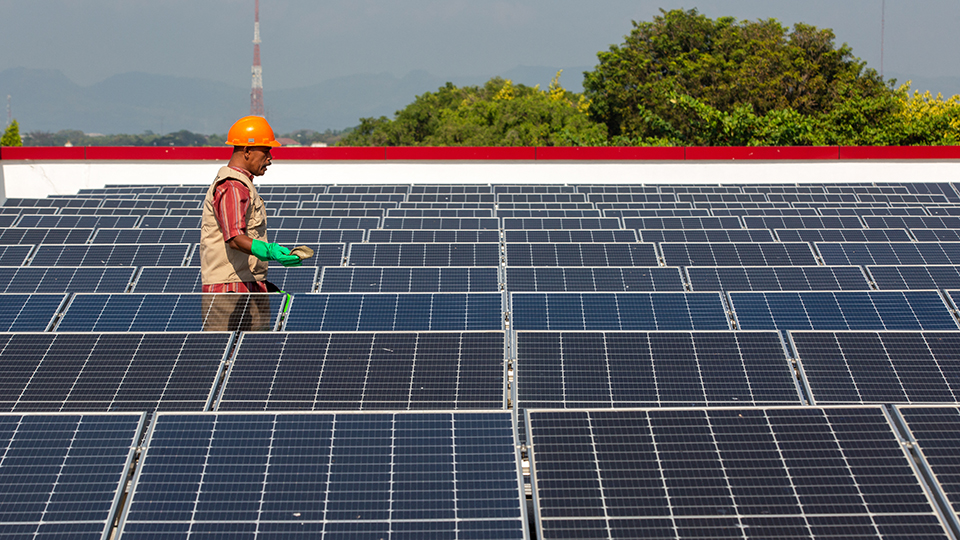
Indonesian President Prabowo Subianto’s ambitious plan to build three million affordable homes annually is a transformative initiative that requires substantial investment—an estimated $2.9 billion. While this figure accounts for construction, it does not cover the necessary supporting infrastructure, particularly clean and affordable energy. As Indonesia pushes for a greener future, the involvement of Chinese contractors in this project presents a unique opportunity to integrate renewable energy solutions and align with the country’s long-term sustainability goals.
Indonesia has already attracted significant interest from global investors. A Chinese company has expressed its willingness to construct up to one million housing units, while nations like the United Arab Emirates and Qatar have also pledged investments. Notably, Qatar stipulated that a Chinese contractor must handle construction, underscoring Chinese developers’ established credibility in large-scale housing projects. However, to ensure these investments contribute meaningfully to Indonesia’s future, renewable energy must be a central component of the housing initiative, not an afterthought.
The sheer scale of the housing project makes it an ideal candidate for integrating renewable energy solutions. A practical approach would involve incorporating rooftop solar photovoltaic (PV) panels, reducing reliance on fossil-fuel-based electricity, and lowering energy costs for future residents. Additionally, China’s expertise in solar manufacturing and infrastructure development presents an opportunity to establish local solar PV component factories in Indonesia, creating jobs and strengthening the domestic renewable energy sector.
Indonesia has already taken steps toward advancing renewable energy adoption. Policies such as net metering allow homeowners to sell excess solar energy back to the grid, creating an economic incentive for renewable energy use. By mandating rooftop solar panel installation in these housing projects, Indonesia can further accelerate its progress toward achieving its 23% renewable energy target by 2025.
Beyond residential areas, Prabowo’s broader vision includes strengthening Indonesia’s food security. Agricultural zones—often in remote locations—require sustainable energy solutions to support farming activities and processing industries. Off-grid solar PV systems, micro-hydro installations, and wind turbines can provide reliable electricity in these regions, reducing dependence on costly and unstable diesel generators. Expanding renewable energy access in rural communities would not only enhance agricultural productivity but also promote sustainable farming practices, reinforcing Indonesia’s broader development goals.
Over the years, China has played a key role in funding hydropower, solar, and geothermal projects across Indonesia. Hydropower plants in Sumatra and Sulawesi, floating solar farms like the Cirata project in West Java, and geothermal energy ventures demonstrate Beijing’s commitment to expanding Indonesia’s renewable energy capacity. Building on this foundation, Chinese contractors have the potential to further contribute by ensuring their work in housing projects aligns with Indonesia’s clean energy transition.
However, it is crucial to recognize that Chinese companies’ role in Indonesia’s renewable energy sector is primarily commercial. Their involvement in the housing program will depend entirely on policies and mandates the Indonesian government sets. If project contracts require renewable energy integration, Chinese contractors will implement these solutions as part of their business operations. This presents a strategic opportunity for Indonesia to leverage Chinese suppliers—the world’s largest producers of solar panels and clean energy components—to advance its sustainability goals.
To maximize this collaboration, the Indonesian government must integrate renewable energy requirements into project blueprints and structure investments to prioritize clean energy infrastructure. Additionally, fostering technology transfers and incentivizing local developers to adopt green solutions will strengthen Indonesia’s renewable energy sector.
To encourage this shift, the Indonesian government could introduce policy incentives such as tax breaks, expedited permits, and preferential land allocations for investors who commit to integrating renewable energy solutions into the housing project. These incentives would not only attract more sustainable foreign direct investment but also provide long-term benefits for Indonesian citizens through reduced electricity costs and lower carbon emissions.
Indonesia’s housing expansion and energy transition are not mutually exclusive—on the contrary, they should reinforce one another. As investment commitments from Qatar, China, and other partners materialize, the Indonesian government must ensure that sustainability remains a non-negotiable priority. Requiring investors to incorporate renewable energy components in their projects will accelerate Indonesia’s shift toward a greener economy while making housing developments more cost-efficient and resilient in the long run.
Integrating renewable energy into Prabowo’s housing project is a commercial opportunity for Chinese companies, while the Chinese government may recognize the broader economic and diplomatic benefits. By actively supporting renewable energy integration in this initiative, Chinese contractors can reinforce their role as key suppliers in Indonesia’s development—aligning business interests with sustainability objectives. Indirectly, this also contributes to China’s broader efforts to position itself as a global leader in the energy transition.
Now is the time for Indonesia and its partners to ensure that this housing initiative incorporates sustainable energy solutions, leveraging available expertise and investment to build homes and a greener and more resilient future for the country.
This article was co-authored by Yeta Purnama, a researcher at the Center of Economic and Law Studies (CELIOS), and Muhammad Zulfikar Rakhmat, Director of the China-Indonesia Desk at CELIOS.





